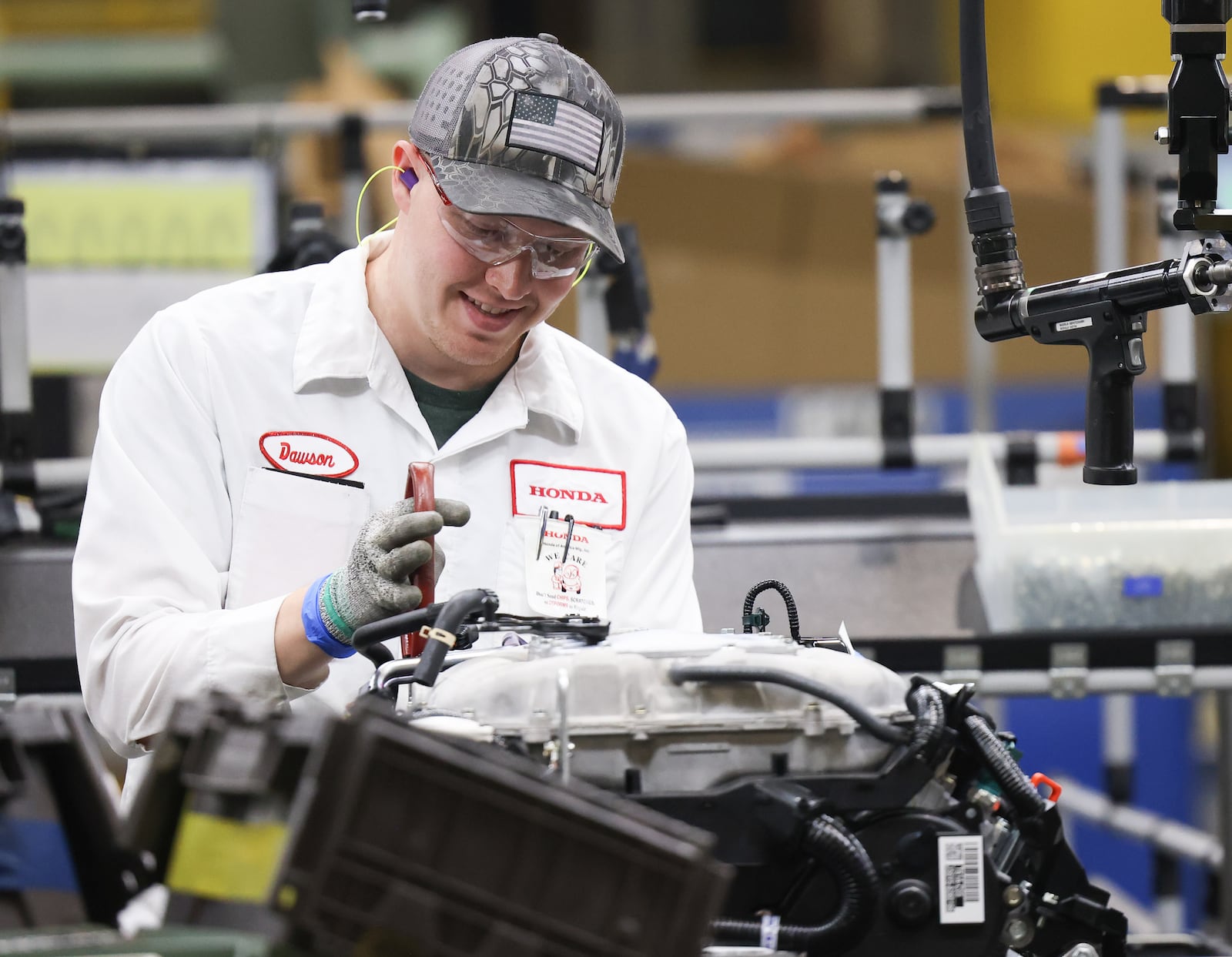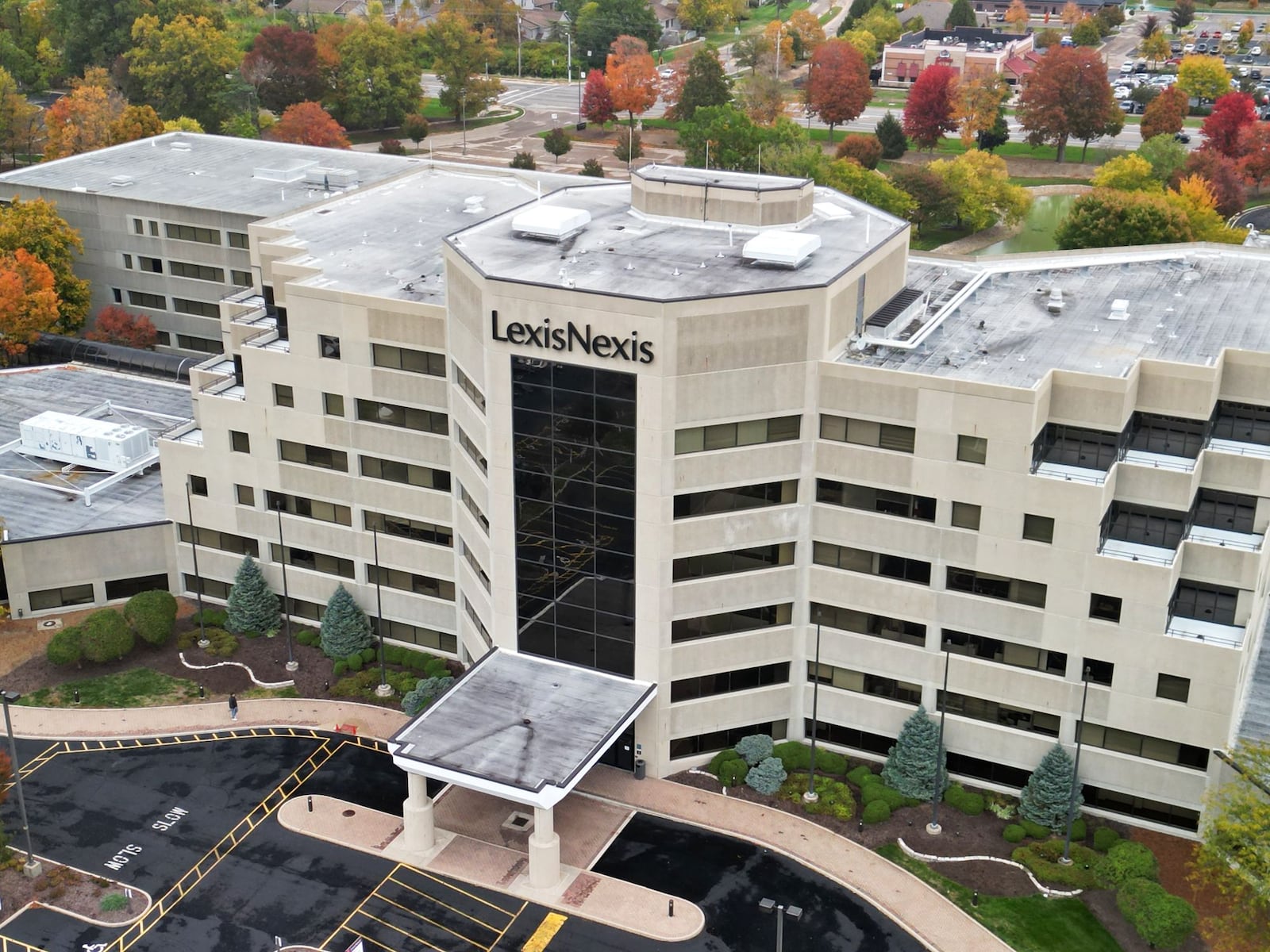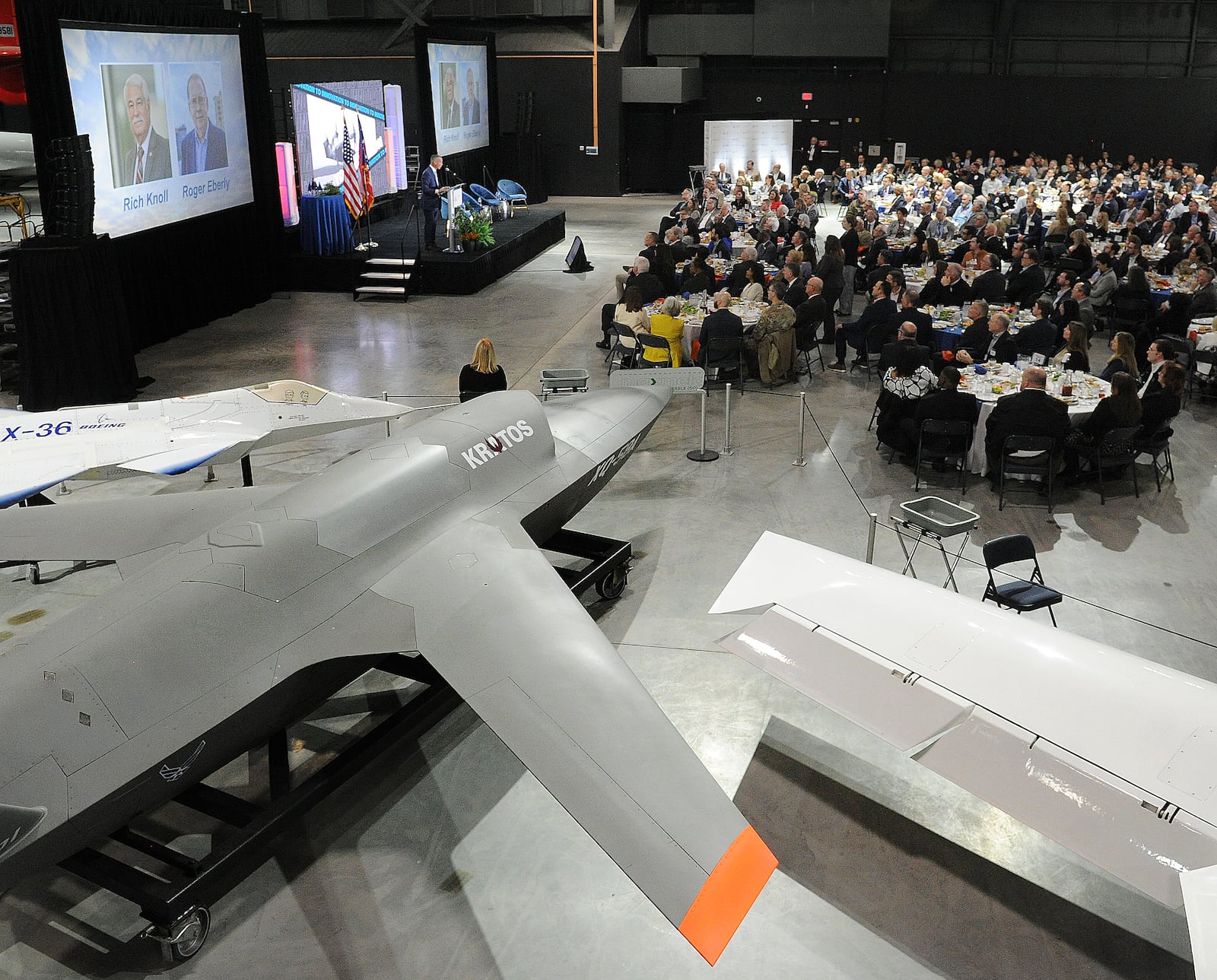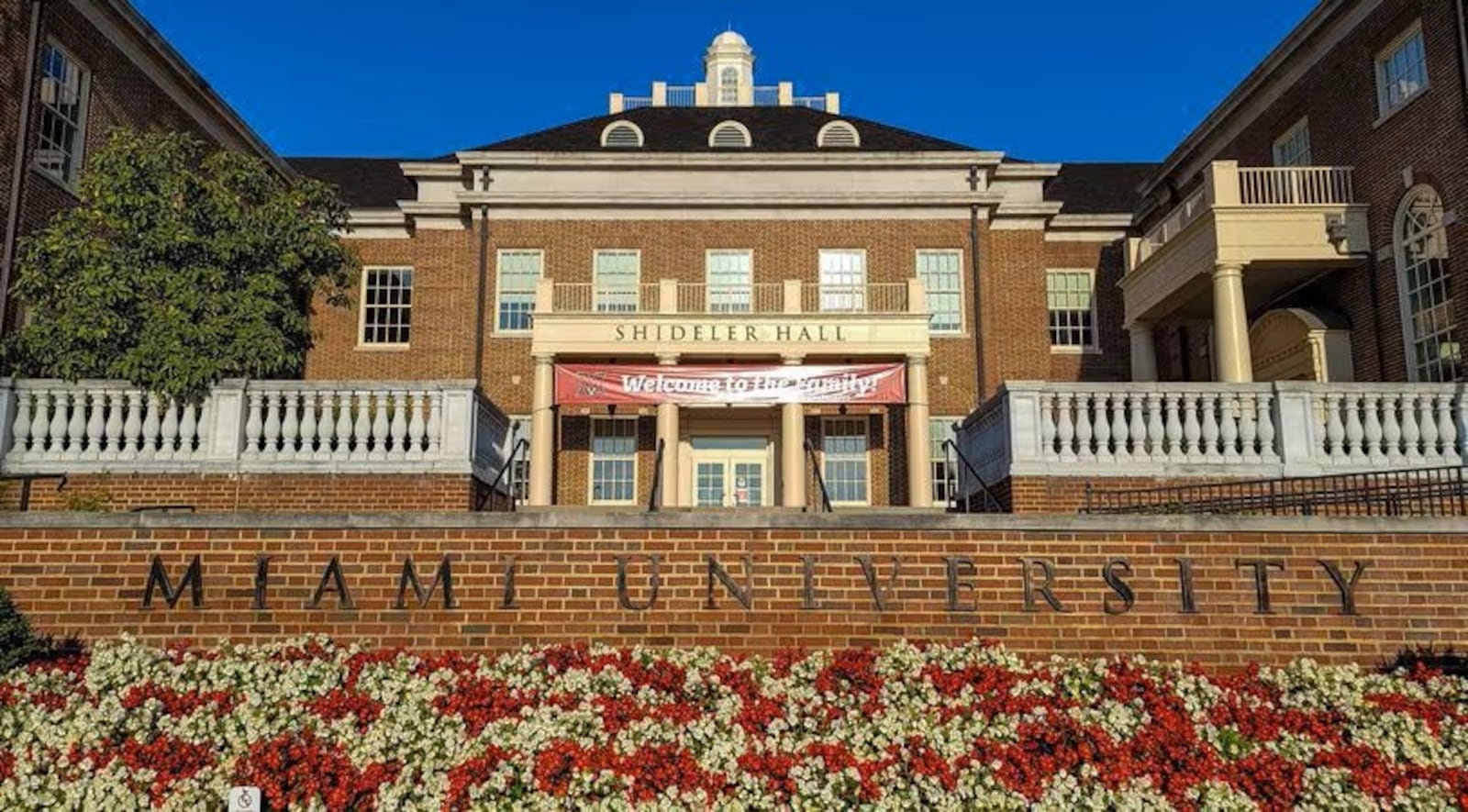New federal disclosures reviewed by the Dayton Daily News detail how entities critical to the region are navigating Washington, D.C.’s decidedly turbulent political waters — with the assistance of some hired help.
The records — documenting lobbying activity during July, August and September — provide insight on potential federal policy impacts to local institutions and how they are trying to protect their interests. Several of them increased their lobbying expenses this year compared to previous years, according to the lobbying expense tracker OpenSecrets.
Why we’re reporting on this: When organizations spend money on lobbyists, they’re trying to influence the laws and policies that shape our lives. By reporting on these expenditures, we help make that influence visible — so you can see who’s pushing for change, and at what cost. Transparency like this is essential to keeping those in power accountable, and keeping you informed.
Here’s a look at how nine institutions with local ties are spending their money on formal federal lobbying efforts, and what they want:
Honda
Credit: Bryant Billing
Credit: Bryant Billing
One of the top spenders on federal lobbying connected to southwest Ohio is the Japanese automotive and motor company Honda, which has substantial operations in the state, including the Anna engine plant about an hour’s drive north of Dayton, as well as growing operations closer by in Troy.
Honda spent $910,000 in lobbying expenses in the third quarter of this year.
Honda’s lobbying efforts in Washington, D.C., which routinely soar into the millions of dollars annually, per federal records, aren’t typically focused on the Dayton region alone. Clean energy tax provision, manufacturing credits, tariff policies, rare earth extraction regulations and “greenhouse gas and fuel economy standards” are among the numerous issues on which Honda reports lobbying in recent months.
Nevertheless, “our advocacy supports Honda’s substantial and longstanding investment in our operations and associates in Ohio and across the U.S.,” Honda spokesperson Chris Abbruzzese said.
And the company is on track to blow past previous lobbying expenditures. Honda has spent a total of $3.2 million on reported lobbying expenses in the first three quarters of this year, compared to nearly $2.6 million in all of 2024.
RELX
Credit: Nick Graham
Credit: Nick Graham
The parent of data analytics company LexisNexis, which has a large office in Miamisburg, had a robust lobbying agenda during the year’s third quarter, with priorities ranging from global tax policy to the use of artificial intelligence in health care to “issues related to comprehensive national privacy legislation,” according to its most recent lobbying disclosure, which doesn’t mention the Dayton area by name.
RELX spent $720,000 in lobbying expenses in the third quarter of this year.
As a global leader of information about legal cases, businesses and even average people, more restrictive government laws and regulations about personal privacy would ostensibly affect LexisNexis’ business.
A representative for LexisNexis did not respond to requests for comment.
The company’s lobbying expenses have been increasing for several years. The $3.2 million they spent last year on lobbying expenditures was a 16-year high. The $2.2 million total spent in the first three quarters of this year is slightly below the same time period last year.
Cleveland-Cliffs
Credit: Nick Graham
Credit: Nick Graham
Cleveland-based Steel company Cleveland-Cliffs, which operates the Middletown Works, lobbied on a variety of issues this summer, including strengthening of steel tariffs, trade with China and a variety of regulations and proposed regulations, including national emission standards for hazardous air pollutants for coke ovens, its most recent lobbying report indicates.
A representative for Cleveland-Cliffs did not respond to requests for comment.
In its 2024 annual report, Cleveland-Cliffs notes that “various governmental bodies continually promulgate new or amended laws and regulations that affect us, our customers and our suppliers in many areas, including air emissions and water discharges, waste management and disposal, the classification of materials and products, and other environmental, health and safety matters.”
It also affirmed its support for tariffs that help the American steel industry.
“With the Trump Administration in office, action is being taken by employing necessary steel tariffs,” it wrote. “These tariffs are critical to addressing the problem to penalize the foreign competitors who have been playing by a different set of rules, while strengthening the domestic producers who actually invest in American workers, American manufacturing, and American supply chains.”
Cliffs is on pace to exceed lobbying expenses in recent years, spending nearly $1.8 million so far this year — $470,000 in the third quarter — which is more than they have spent for the first three quarters of any year since 2019.
CareSource
The $210,000 CareSource spent on lobbying in the third quarter of this year is more than they spent in all of 2024.
The Dayton-based nonprofit managed healthcare organization, which specializes in providing Medicaid, Medicare and government Affordable Care Act health exchange plans, focused its lobbying efforts on Congress in recent months, according to federal disclosures.
There, it lobbied on the Medicaid provisions of the “One Big Beautiful Bill Act” and the extension of what are known as enhanced advanced premium tax credits, which expand eligibility for reduced health care premiums to more Americans.
CareSource also lobbied on the Continuing Appropriations and Extensions Act — the bill that the U.S. House passed, but that the U.S. Senate has so far rejected, that would have kept the federal government open and funded.
“As part of our mission to improve the health and well-being of our members, it is important that we advocate on issues affecting the individuals and communities we serve,” CareSource spokesperson Vicki McDonald said. “CareSource works closely with federal lawmakers to ensure our members have access to high-quality health care.”
She added: “Because our health plans are government-sponsored, everything we do in Washington and across the country impacts our work here at home.”
CareSource has spent $550,000 total on lobbying in the first three quarters of this year. The non-profit spent $150,000 in all of 2024. In fact, it has spent more this year than in any full year during the Biden administration.
One apparent factor in the increase is CareSource’s 2025 acquisition of Commonwealth Care Alliance, a nonprofit providing health care services organization in Massachusetts. Commonwealth Care Alliance is listed as a subsidiary of CareSource in its most recent reports.
Dayton Development Coalition
The Dayton Development Coalition is also on track to exceed previous years’ lobbying expenses. The $250,000 it spent through September — including $50,000 in the third quarter — is more than it spent during the same time period any year in recent history.
Generally, the Dayton Development Coalition’s lobbying strategy centers on efforts that “promote the interests of Wright-Patterson Air Force Base and other federal installations in the Dayton-Springfield region and that support economic development in the region, including maintaining the quality of life for employers and employees,” said Shannon Joyce Neal, the organization’s vice president of strategic communications.
During the past several months, that’s specifically involved several dozen individual matters from the sweeping, such as federal Community Project Funding for the Dayton region, to the niche — urging the Department of Defense and Department of the Air Force to retain the rank of commander of the Air Force Material Command as a four-star officer, according to its most recent lobbying disclosure.
Key lobbying priorities of late include lobbying for military construction projects at Wright-Patterson, advancing stronger ties between the Air Force Institute of Technology and the U.S. Space Force, adjusting the boundary of the Dayton Aviation Heritage National Historical Park, planning infrastructure improvements at the Naval Medical Research Unit Dayton and increasing the threshold for minor military construction projects under the Laboratory Revitalization Program, Joyce Neal said.
“The coalition will focus on these issues because Congress has made some progress but has not yet completed action,” she added.
Michael Gessel serves as the Dayton Development Coalition’s long-time, D.C-based, in-house lobbyist, and he’s recently met with the staff of Ohio’s Republican U.S. Sens. Bernie Moreno and Jon Husted, as well as Rep. Mike Turner, R-Dayton, to press the organization’s priorities. Gessel grew up in Dayton and previously worked as a congressional staffer.
City of Dayton
Dayton’s city government routinely spends $40,000 each quarter on federal-level lobbying efforts, and this year’s third quarter proved no different.
The city of Dayton contracts with two Washington, D.C.-based lobbying firms — DiNino Associates LLC and Smith Garson — paying each one $20,000 during the third quarter. Paul DiNino, one of the city’s lobbyists, is an experienced Capitol Hill staffer, having served as deputy chief of staff to former U.S. Sen. Harry Reid, D-Nev. Another, KP Pratt, once served as chief of staff for Rep. Peter DeFazio, D-Ore.
Dayton officials disclosed lobbying this summer on federal appropriations for 2026, federal grants for transportation projects, legislation “impacting public tracking of private flights” and remediation and clean-up issues related to man-made chemicals, known as PFAS, that don’t easily break down in the environment.
Specifically, the city of Dayton has lobbied its congressional delegation for economic and community development funds and pressed its case for federal Department of Transportation grants, Deputy City Manager Joseph Parlette told the Dayton Daily News. The city has also lobbied against congressional legislation that would, in part, decrease the Dayton International Airport’s ability to collect fees from private flights that use the airport, he said.
As for PFAS matters, Parlette said the city’s water system continues to register chemical levels above Environmental Protection Agency-required standards, and “the city worked with the congressional delegation to consider ways the federal government can assist the city with PFAS remediation and cleanup.”
Some lobbying efforts have proven initially successful, Parlette said. The city’s efforts, he said, secured congressional delegation support for millions of dollars worth of federal funding priorities such as the Wright-Dunbar development and the revitalization of Edwin C. Moses Boulevard. Dayton secured a $2 million federal grant for the city’s “Revive 35” project, but the Trump administration had put this and thousands of other transportation grants on hold pending review, he noted.
“Current issues of concern are not completely funded and will remain priorities,” Parlette said. “New issues arise frequently but are often unforeseen.”
As for Dayton’s choice of lobbyists, Parlette added that contracts are “competitively bid every few years.”
Miami University
Miami University’s two in-house lobbyists focused their efforts on research funding for higher education and tuition remission, with Congress their primary target, according to the school’s most recent lobbying disclosure. Miami University typically spends a five-figure amount on federal-level lobbying each quarter, federal records show.
The two lobbyists, Lauren Poythress and Randi Thomas, are university employees — and alumni who “have excellent relationship skills, are experienced professionals, and have strong connections at both the local, state and federal levels among many other valuable qualities,” Miami University spokesperson Seth Bauguess said.
The university’s ASPIRE office — the acronym stands for “advancing state priorities, igniting regional economies” — also tracks legislation, monitors hearings, talks with legislators and their staff and is involved in “pulling together applicable university responses to the issues of the day and identifying and communicating priorities for the university and the state of Ohio in the realm of higher education,” Bauguess said.
The $130,000 spent so far this year — including $30,000 in the third quarter — is lower than the same time period last year.
University of Dayton
Credit: JIM NOELKER
Credit: JIM NOELKER
The University of Dayton has hired Strategic Marketing Innovations lobbyist Mark Gillman to advocate for “increased funding for research in areas including UAVs (unmanned aerial vehicles), wind turbines and energy efficiency,” according to its most recent federal lobbying disclosure.
“Our goal in asking for additional funding is to advance University of Dayton Research Institute-based projects that draw on our strengths as a university and a community with an eye toward issues of import and potential for growth,” University of Dayton President Eric F. Spina told the Dayton Daily News.
The specific issues on which the University of Dayton lobbied “align with research priorities and provide opportunities to create economic development in the Dayton region,” Spina said.
Spina also noted that the university also advocates for its priorities through higher education-centric associations such as National Association of Independent Colleges and Universities.
In the near future, the University of Dayton expects to advocate in Washington for student financial aid “to enhance access and affordability for a UD education” as well as “streamlining regulatory issues so we can focus on our core priorities of education and research.”
The $70,000 UD has spent on lobbying so far this year — including $10,000 in the third quarter — is an uptick from the same time period in recent years. Last year, it spent $90,000 the full year.
Those that don’t lobby
Federal lobbying isn’t for everyone.
For example, smaller municipalities in the Dayton region, including Springfield, Kettering and Beavercreek, did not report federal-level lobbying expenditures.
Montgomery County officials say they have no plans to hire federal lobbyists, but they do directly engage with legislators and are a member of national associations that advocate for interests of counties across the country.
“Instead of spending funds on lobbying services, the county invests those resources into critical programs and services that support our more than 537,000 residents,” said Montgomery County Administrator Michael Colbert.
Hamilton County, by comparison, contracts with lobbying firm Roetzel & Andress, with lobbyist Diana Feitl, a one-time aide to former Rep. Betty Sutton, D-Ohio, serving as the county’s dedicated lobbyist in D.C.
The county’s federal lobbying efforts, according to its latest lobbying disclosure, are quite narrow.
“Our primary focus is on the Clean Water Act consent decree for the Metropolitan Sewer District — to reduce and ultimately eliminate sewage overflows,” county spokesperson Bridget Doherty said. “Specifically, we are advocating for flexibility and affordable rates for customers.”
About the Author





